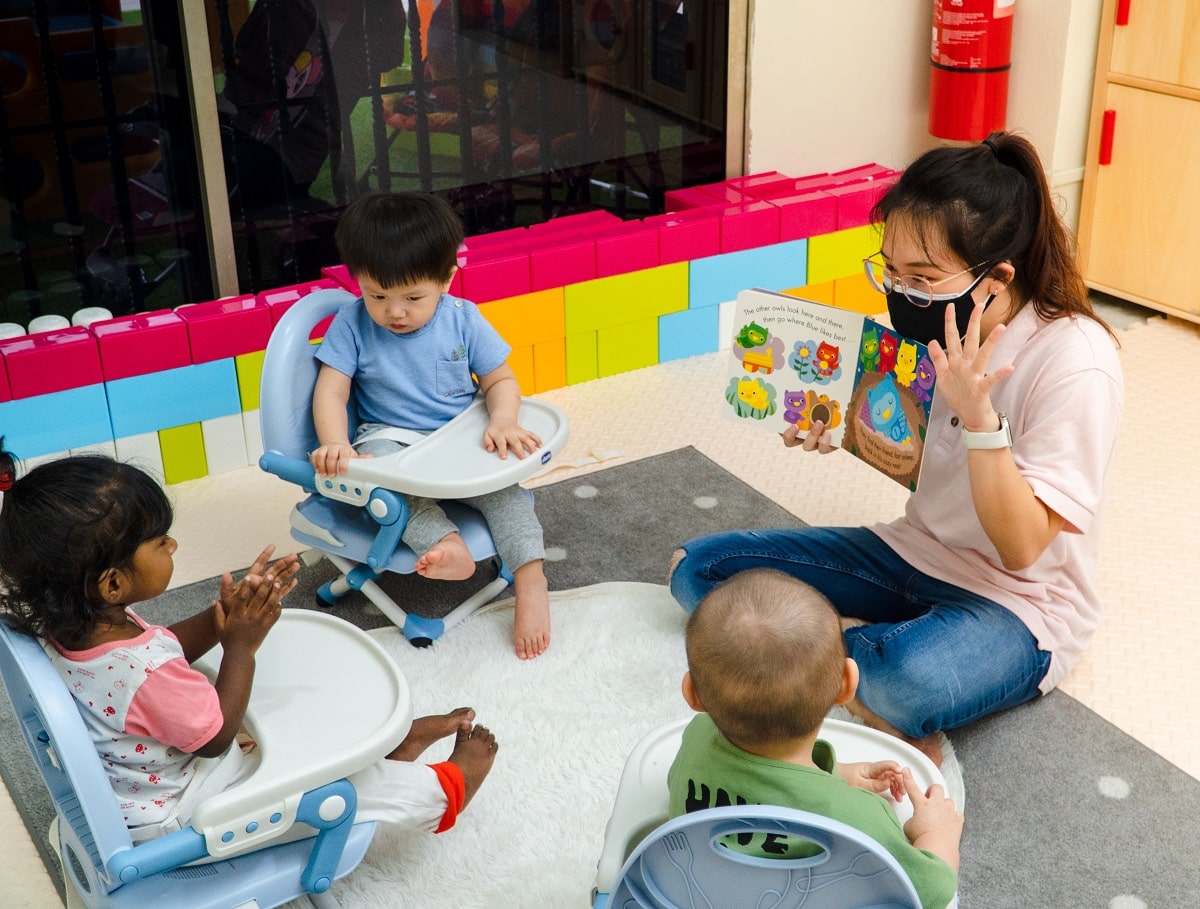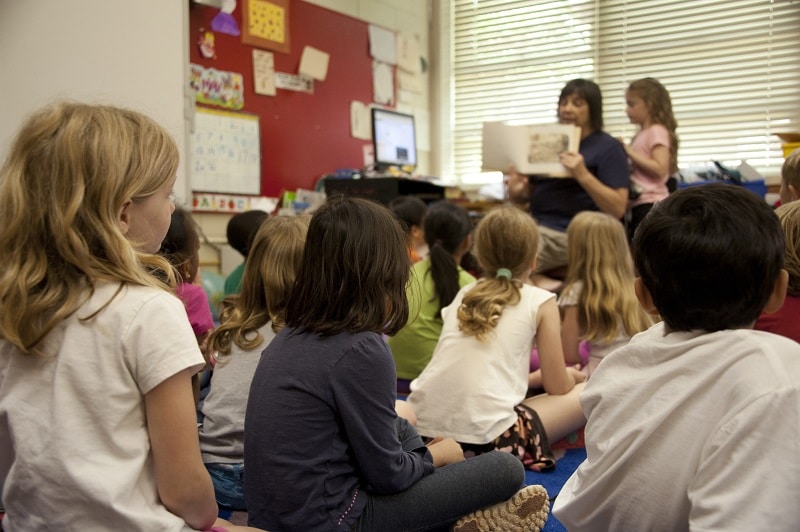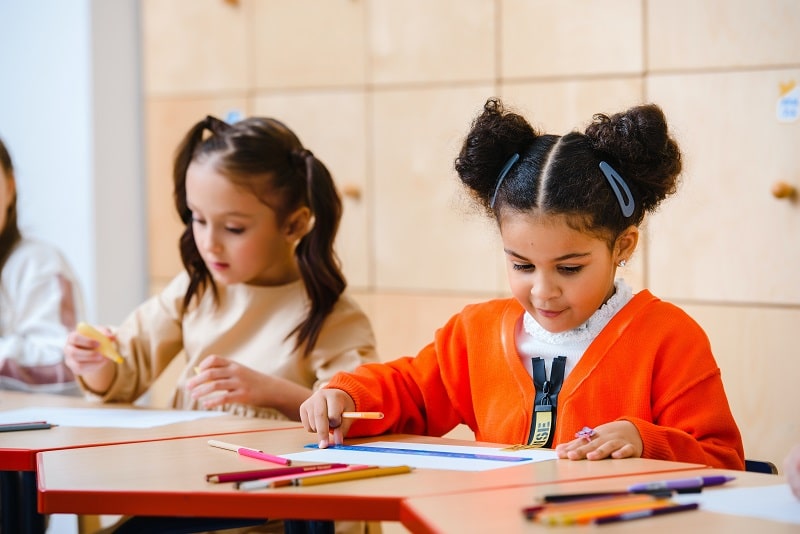
What Is The Best Age To Start Kindergarten?
The question of what age children should start kindergarten is up there with all the other questions giving rise to debate when it comes to raising children. We debate what age they should be potty trained or at what age they should begin sleeping in their own rooms.
Most kids are typically ready and eligible to start kindergarten at the age of 5, but in some cases, kids can join from 4 years to as late as 7.
If your child is near the grade cut-off point, they may be able to start kindergarten early, or in some cases, you may delay their entry. It is only required to attend kindergarten in 19 states, and your state may have specific eligibility rules.
Typically by US law, children should start school at 6, or 7 in Alaska. So does your child need to attend kindergarten before this? To understand if your child is not just eligible but ready to enter kindergarten, keep reading.
Table of Contents
The Age To Start Kindergarten Is a Grey Area
The ideal age to start attending kindergarten is a grey area open to debate between parents, educators, and experts. In that grey area, there seems to be some agreement between the concerned parties on some points, while other aspects are unresolved.
- The vast majority of commentators seem to be in agreement that kids should be potty-trained before attending kindergarten.
- However, the jury is still out on the question of whether a six-year-old who hasn’t attended kindergarten should spend their first year of school life in primary school or in kindergarten.
- And likewise, a clear decision hasn’t been made on whether attending kindergarten makes a valuable contribution to a child’s education.
In an attempt to make sense of the muddle, we will walk you through some of the factors that have a bearing on the question in this article.
What Is “EDUCATION”?
In a first step to understanding, let’s have a look at what education actually means. The term comes from the Latin word “Educare,” which, when translated, means to “Draw out.”
From that, we can gather that the real meaning of education is to draw out the abilities and talents the person has and to enable that person to use them in a way that will lead to a fulfilling life.
But where does education begin? At school? In kindergarten? No.
Psychological studies pinpoint the parents as the first educators a child has and tell us that when the child goes into the educational system, the teacher acts “in loco parentis,” i.e., works in the place of the parent.
So, when a child isn’t at school, they are still learning and being educated, albeit with their parents and family.
But what are they learning? They are learning to use their talents and abilities in a way that will equip them for life.
And life being the complicated thing it is, they also need to develop the skills that will enable them to navigate their way when they leave home and school.
Learning Life Skills
Chief among those skills is learning to use the tools that make up the way we deal with the world.
The young child learns to:
- Use language
- Recognize numbers and letters
- Identify colors, albeit in a limited way
Children who attend a 1-4-year-old kindergarten are introduced to those through play.
For the parent who doesn’t want their child to leave home at such a young age, there are numerous ways of helping with those early learning stages.
Games, toys, books, and resources have all been designed with the intention of helping preschool children develop their skills.
The parent or significant adult can join in the fun of helping the child learn, as it is through play that children learn.
While we see children as having endless hours of fun, the child is actually working hard at understanding their world and figuring out their place in it.
Social Skills
Figuring out their place in the world isn’t just about learning numbers and letters. It is also learning about people and developing their social skills.
Great if you can provide your child with a house full of people and especially children. But for a great many people, that isn’t always possible. In that situation, it may be time to consider kindergarten.
There they will meet kids of the same age group and begin the process of engagement that will last them a lifetime.
However, they have to be a minimum of 5 years of age to start kindergarten in many states, so a preschool setting may be the answer here. But that option isn’t available to everybody.
How Do You Know If Your Child Is Ready For Kindergarten?
A bigger question, however, is if your child is ready for kindergarten. And that is not a “one size fits all” situation.
Your child may be able to identify numbers and colors, but you have to look at the following questions as well.
- Are they ready to be away from you for long spells of time?
- Are they able to manage their personal needs without you? Think eating, using the bathroom, and asking for help if something goes wrong.
- Can they follow instructions?
However, if you decide to hand your child’s education over to the teachers, there are still a lot of questions to answer. The biggest one is what the educational value of kindergarten actually is.
That is another question on which the jury is still out.
When And Why Should You Consider Redshirting Kindergarten?
For some of the following reasons, parents have decided to redshirt kindergarten, meaning they delay the child’s attendance for a year.
Experts have commented that many children have the social, physical, and basic academic skills to start kindergarten at 5 or 6.
However, when it comes to academic achievement, opinions vary. Some experts maintain that a child’s academic ability improves with age rather than with the number of years they are in school for.
Some studies have found that a six-year-old child new to kindergarten will outperform a five-year-old who has been in the setting for longer. However, over time this will become more balanced.
The Swiss psychologist, Piaget, maintained that learning happens in different ways at different stages, meaning that as they age, children’s learning ability improves.
Is it possible then to say that a child who starts kindergarten at 5 has or doesn’t have an advantage over a child who starts at 6?
What Are The Academic Benefits Of Starting Kindergarten Early?
Despite the purpose of education being to develop the abilities the child is born with, in a few short years, your child will be catapulted into an increasingly competitive world.
- First, the child will encounter the world of academic testing.
- Secondly, they will be asked to deal with the even more challenging world of deciding on careers and the path their education should follow.
At What Age Then Should They Start Kindergarten?
A parent may ask themselves if their child is sufficiently challenged in their home situation to develop the academic abilities the world will demand from them.
If they feel the child is not challenged, then it may be time for them to attend kindergarten. Or the parent may decide that they can challenge the child’s abilities themselves. So once again, the uncertainty around attending kindergarten leaves the decision-making with the parents.
And to add to the complications, no two children are the same. What is working for a child of a similar age may not work for yours.
Is Your Child Emotionally Mature Enough For Kindergarten?
The decision involves more than looking at the child’s academic abilities. Another factor that will affect their schooling is their level of emotional maturity.
How well they are doing in terms of managing their own personal needs is easily measured. Measuring emotional maturity demands that the parent has to stand back and take an objective view. They need to establish the following:
- If their child understands that other people have feelings just like they do
- If the child is ready to engage with other children
- If they understand the concept of sharing
- If they are able to express their needs
- If they are able to play in a group
- If they can show some responsibility
And don’t worry if you feel your child is not displaying all of those skills.
Emotional maturity comes to different children at different points. For example it is generally accepted that girls show emotional maturity earlier than boys do. A child’s place in the family will also make a difference.
If you have a number of children you have probably noticed the differences between the eldest and the youngest in terms of the rate they mature at. And countless books have been written about the difficulties a middle child may have.
If the parent feels the child lacks the emotional maturity necessary for this step then they may want to hold the child back for another year.
But that emotional maturity needs to be developed.
Tips And Tricks For Developing Emotional Maturity
A lot of the work done in kindergarten is done with the purpose of developing emotional maturity.
If a parent decides to redshirt kindergarten, then it may be advisable to get the child ready for when they are going to attend.
The best way, of course, to do this is by incorporating some of the kindergarten activities into the child’s life.
Try getting the child into a local sports group for children of the same age. Sports teach children to work with a team and play their part.
They also learn the difficult lesson that we can’t always win. If your child is not interested in sports, you could always encourage them to play board games with other children.
You could even give them a little bit of responsibility. Perhaps give them one small chore that belongs to them exclusively and boost their confidence with a word of praise when they do it.
Other Factors To Consider
Many psychologists maintain that a child’s personality is formed by the age of 4. Others assert that children are like wet cement; whatever falls on them leaves an impression.
Either way, when a child enters kindergarten, they encounter a world that is new to them and that will present them with challenges.
They may already have the personal resources to deal with this, but for most, that first step into independence can be daunting.
Suddenly they are going from a world where a significant adult was available to pick up the pieces to one where they are:
- Getting their first taste of independence
- Encountering situations that are new to them
- Having to make choices
Undoubtedly the kindergarten teacher will help them with all of that.
But the child will also need some degree of self-confidence to navigate this world.
Independence And Making Choices
One of the main reasons children are sent to school is to learn to be independent.
But with independence comes having to make choices. The choices to be made in kindergarten may appear small to the adult. However, deciding what game to play or what person to call your best friend can give a child a lot to muddle through.
But other choices can be more challenging.
What if, for example, your child becomes friendly with a child whose parents do things differently to the way you do them?
Will your child be caught between deciding that his or her parent is correct or that the other child’s parents are the ones who have got it right?
Will they have the confidence to stick with what they have learned in their own home?
Or will they begin to question you or reach the stage where they understand that people are different?
They may be in kindergarten, but the parent will be the one helping them to work their way through this stage.
As with all child-raising issues, the questions come firmly back into the parents’ court!
In Conclusion
Starting a child in elementary school is the easy one. The government and school districts have made the decision on that step.
However, the choice of the age at which a child should attend kindergarten is entirely up to the parents.
The best solution seems to be for the parents to get to know their child’s needs and abilities. Doing that will help them come up with the decision that is best suited to their own young learner.
Written by Elizabeth O Mahony
With 25+ years’ experience as a teacher and state examinations corrector, Elizabeth now writes for the education and careers industry. Her experience preparing students for examinations and running an academy for supplementary education give her invaluable insights into what it takes for job seekers and graduates to succeed in assessments.
Sarah is an accomplished educator, researcher and author in the field of testing and assessment. She has worked with various educational institutions and organisations to develop innovative evaluation methods and enhance student learning. Sarah has published numerous articles and books on assessment and learning. Her passion for promoting equity and fairness in the education system fuels her commitment to sharing insights and best practices with educators and policymakers around the world.








